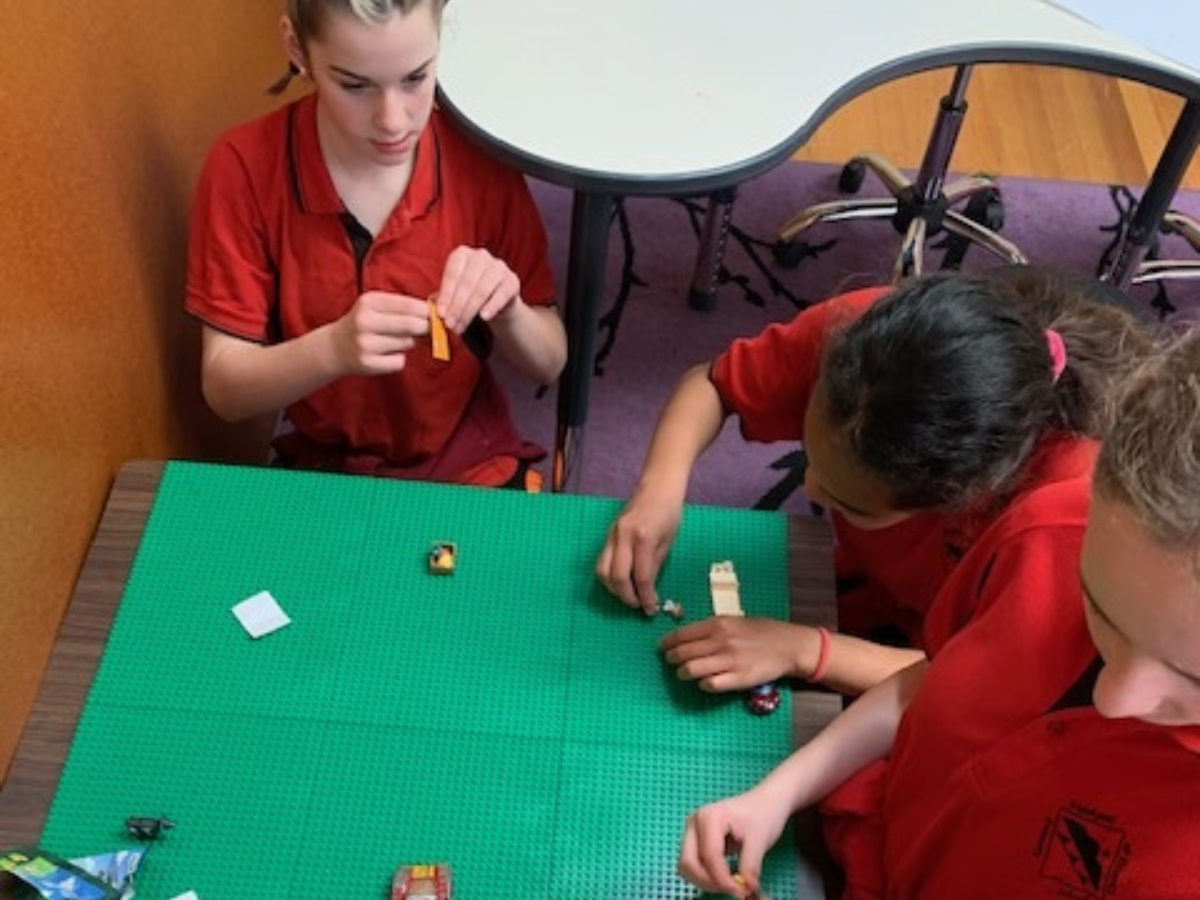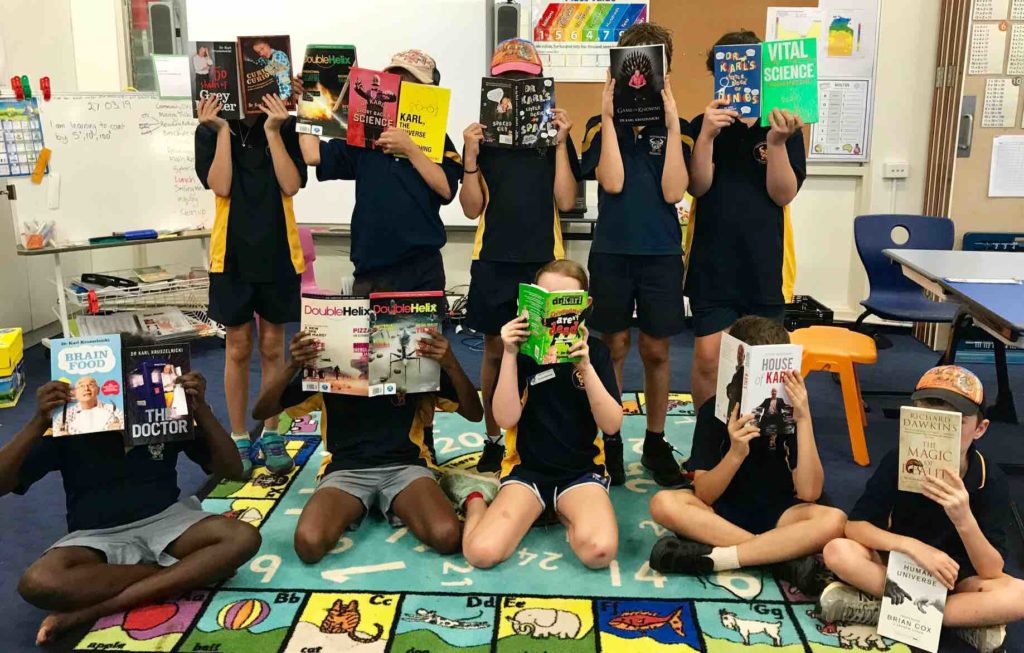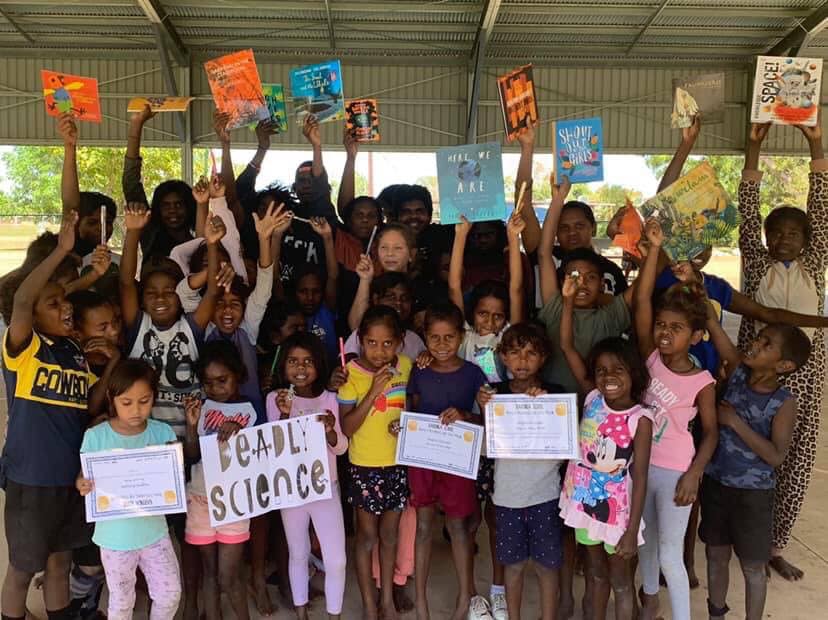Foundation for Rural & Regional Renewal (FRRR)
In the Victorian dairy region of Gippsland, a small primary school identified challenges with the gender imbalance at their school and came up with an idea they felt could address the matter and improve the learning outcomes of their students.
Welshpool and District Primary School applied for a Gardiner Foundation Community Grant in 2022. At that time, they had 32 enrolled students, seven of which were girls (22%) and 25 (78%) boys. Recognising the need to support the girls in their school and promote connection and empowerment, the community secured a $5,000 grant. This grant allowed the school to further invest in their science program, via the ‘IncrediGirls’ program, with a focus on the girls within their school.

The ‘IncrediGirls’ program delivered science, technology, engineering and mathematics (STEM) activities to the girls in the school. The participants were then encouraged to share the same experiences with other students in their class, with the support from their teachers. The program also featured guest speakers from the community, fostering connections beyond the school. Activities encompassed a variety of events such as RUOK day, shop visits, STEM-focussed sessions, Kinder transition books, LEGO build days (as shown in the image), and more.
This project aligned with FRRR’s Gardiner Foundation Community Grants program objective of ‘Providing Lifelong Education and Training’ via projects that provide locals with access to opportunities that enrich their learning and skills development. The implementation of the ‘IncrediGirls’ program at Welshpool and District Primary School created opportunities for students to develop an interest and passion for STEM skills. Additionally, it indirectly fostered teamwork, connection and leadership opportunities.
Gabrielle Boyd, the principal of Welshpool and District Primary School expressed gratitude from the school and the students for the grant.
“This has been such a fantastic grant opportunity for our school. The students were very excited to know they had been selected to receive the grant and the ‘IncrediGirls’ loved being involved in the spending of the funds as well.”
She continued saying, “The program has contributed to improvements in self-esteem, teamwork, friendships, connections and has broadened students’ perspectives globally, shifting the focus beyond themselves. This has, in turn, enhanced community life in this small, outer regional community.
“Our school is very proud that the ‘IncrediGirls’ program is not only thriving within our school but, thanks to the positive outcomes, is also expanding to other schools in the region.”

Did you know that some schools in remote Australian communities might have as few as 15 books in their library?
That discovery in 2017 prompted Corey Tutt to start sourcing and supplying resources himself, initially from his personal library. DeadlyScience Limited was established in 2020, and is now a registered charity. Through DeadlyScience, Corey is seeking to inspire a new generation of scientists.
It focuses on providing Science, Technology, Engineering, and Mathematics (STEM) and early learning reading resources to remote Australian schools to help increase engagement.
The initial priority is schools with a high proportion of Indigenous children. Where possible, and appropriate, DeadlyScience sources materials from Indigenous authors, artists, and translated versions in Indigenous languages. In the three and a bit years since inception, DeadlyScience has had more than 110 schools requesting resources.
They have delivered more than 16,000 books, 500 telescopes (and basic science kits), 80 educational resources and six greenhouses (plus seeds, and educational materials to support food production projects) to more than 100 Australian schools and/or communities.
This growth looks set to continue as the organisation gains more momentum and profile. Another key activity involves maintaining a website to support teachers in remote schools with access to high quality scientific research and relevant experts in their fields (also of Indigenous background, where possible).

In 2020, DeadlyScience partnered with FRRR to set up a Not-for-Profit Fundraising Account, allowing them to attract tax deductible contributions from a broad range of donors to expand their activities and support the overall capacity and operations.
You can add your support by donate securely online, or check out the DeadlyScience website to learn more about their work.
To learn more about opening a Not-For-Profit fundraising account, get in touch with Jo Kemp.

